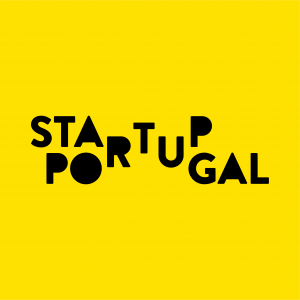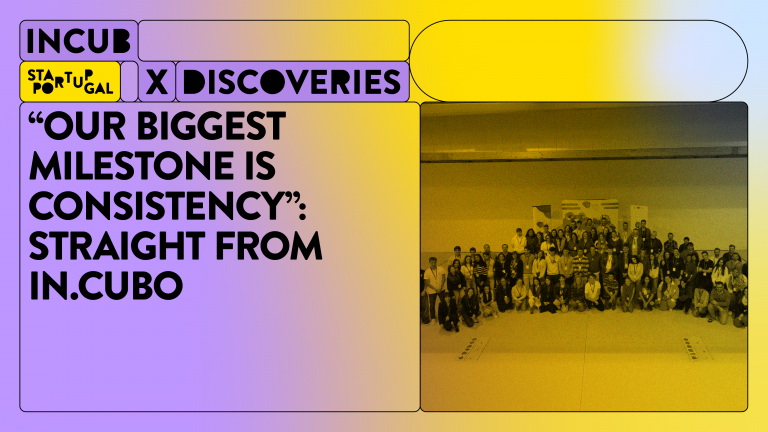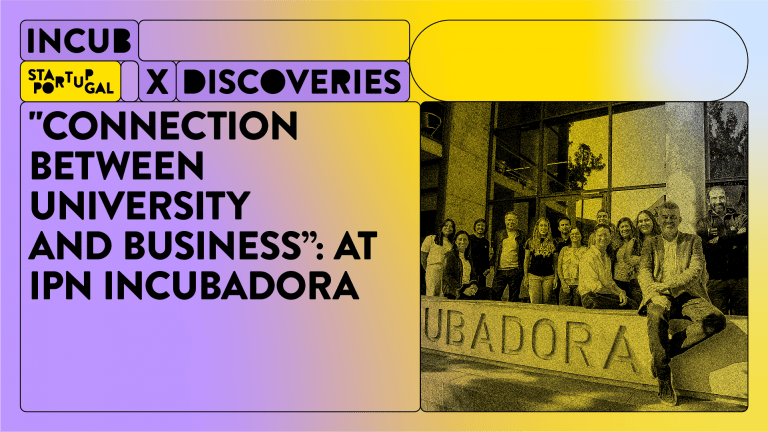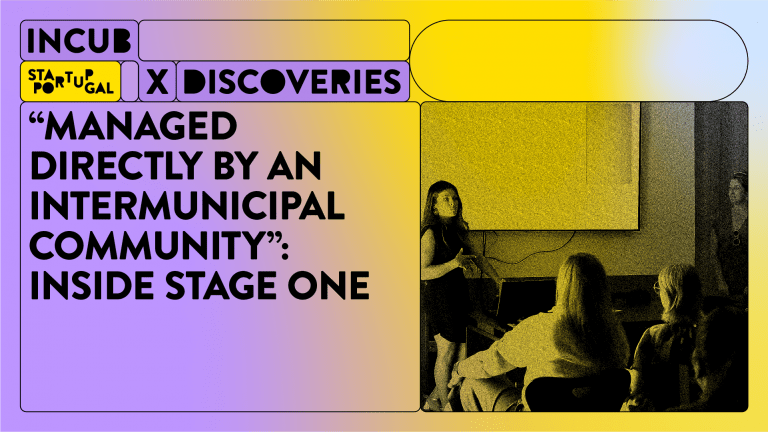“A complete and personalized support ecosystem”: one decade of Brigantia-EcoPark
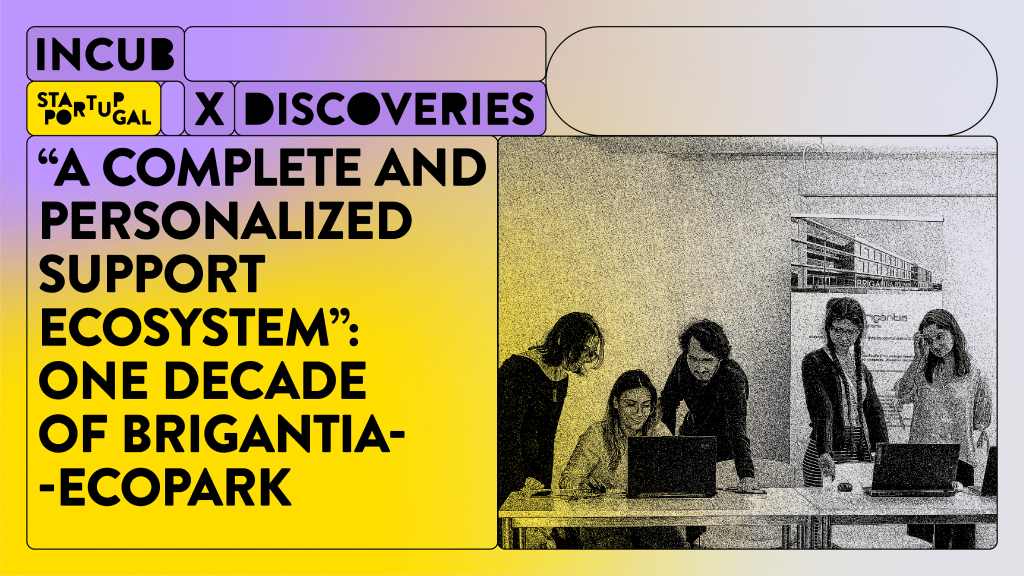
Ten years after opening its doors, Brigantia-EcoPark continues to prove that innovation doesn’t only happen in big cities. In Bragança, it has built a thriving community around tech, research, and sustainable entrepreneurship. We spoke with Alex Rodrigues, its Executive Director, about what’s made this journey unique—and what’s coming next.
This content is available in Portuguese.
– How did Brigantia-EcoPark come about? What kind of projects do you incubate?
The “Brigantia-EcoPark” Science and Technology Park was launched as a strategic initiative to promote technological development, innovation and entrepreneurship in the Bragança region. The Brigantia-EcoPark is a science and technology space that supports both established and incubated technology-based companies. It also has laboratory spaces to support research, development and innovation. The founding members are Bragança City Council (CMB), Bragança Polytechnic Institute (IPB), Vila Real City Council (CMVR), the University of Trás-os-Montes and Alto Douro (UTAD) and the Porto Science and Technology Park Association (Portus-Park). Brigantia-EcoPark was inaugurated on August 28, 2015 and this year marks a decade of activity.
– Do you have an area of specialization?
Brigantia-EcoPark has been consolidating strategic areas of specialization, aligned with the existing resources and skills in the Bragança region, always with the close proximity and involvement of the Polytechnic Institute of Bragança (IPB). The most prominent areas of specialization are those related to Information and Communication Technologies (ICT), the Environment, Energy and Eco-Construction.
– What does your incubation model consist of?
Brigantia-EcoPark’s incubation model (physical or virtual) is designed to support startups and technology companies at different stages of their development, from defining the concept and business idea to acceleration and internationalization. The model combines physical infrastructure, technical support (mentoring, workshops, …), access to a network and a privileged connection to the research and intellectual property protection support available at IPB.

– Tell us the story of a startup that has made a mark on the incubator? And where has incubating with you made a difference?
Tree Flowers Solutions (TSF) – https://treeflowerssolutions.pt/ – is a biotech company focused on the development and production of natural ingredients for various industries. In Portugal, it is the first company to develop its main activity in the extraction of bioactive compounds from plant products and in particular from the wine and chestnut industries, namely the extract from chestnut by-products, known as Chestwine, which is a natural and organic ingredient developed primarily for the preservation of beverages, to offer a natural alternative to the synthetic additives still in widespread use.
Incubation at Brigantia-EcoPark has made a difference for Tree Flower Solutions by providing a complete and personalized support ecosystem. Now, Tree Flowers Solutions stands out for the differentiation and competitiveness of its products, especially in sectors where the demand for ingredients of natural origin is constantly growing. The focus on sustainable innovation and the development of products based on scientific knowledge (initially developed and patented at IPB), are the driving force behind Tree Flowers Solutions achieving leadership in the sector.
– Failure is also part of the journey. What did you learn most from something that didn’t go well?
One of our greatest lessons was to realize that it’s not enough to offer a physical space, but rather to invest in building a community and a skilled ecosystem that is very close to higher education institutions and local companies. From that moment on, Brigantia-EcoPark changed its focus and began to invest more in training, personalized support and mentoring, promoting events that boost networking, and valuing its strategic partnership with IPB and other regional entities. This change in mindset has resulted in sustainable and successful growth.
– What is the differentiating factor of your incubator? In other words, what is it about you that makes you unique and enhances the success of the startups you incubate?
Brigantia-EcoPark’s great differentiating factor is its deep connection to the territory, combined with an excellent knowledge and innovation network. What makes us unique is our ability to offer startups and established companies that come to us a technological environment of excellence, set in a region where there is still room to experiment, make mistakes and grow, without the pressure of large urban centers, and with direct access to the Polytechnic Institute of Bragança (IPB) and its researchers, laboratories, students and, of course, a whole community committed to collaborating and integrating.

– Community is one of the factors that distinguishes an incubator from an office center. How do you look after yours and what plans do you have to make it more cohesive and fertile?
Community is the heart of an incubator, and at Brigantia-EcoPark we take that very seriously. We know that what really distinguishes a simple incubator from an office space is its ability to generate collaboration, knowledge sharing and a spirit of mutual help among entrepreneurs, researchers and partners. That’s why we try to look after our community in the best possible way.
– What are the main challenges for incubation in your specific context?
In the specific case of Brigantia-EcoPark, highlighting its location in Bragança, the main challenges for incubation are deeply linked to the characteristics of the territory (inland) and the stage of maturation of the regional innovation ecosystem. Although we have excellent infrastructure and a strong connection to the Polytechnic Institute of Bragança (IPB), there are geographical barriers that require specific strategies and, of course, a lot of resilience and focus.
One of the biggest challenges is retaining and attracting talent, especially in highly competitive areas such as science and technology. Many young people trained in the region tend to migrate to large urban centers or abroad, where job and career “opportunities” abound.
Another major challenge is the small size of the local/regional market, which forces startups to immediately think about scalable and export-oriented models, which is not always easy at an early stage.
In addition, access to investment is still very limited in the region, which means putting in extra work to connect startups with national and international funding opportunities.
– Do you want to share any news with us?
Yes, we have some exciting news that really deserves to be on your agenda: Brigantia-EcoPark is expanding!
We currently have an occupancy rate of 98.54%, with around 80 companies and approximately 420 employees working in the park, and it’s time for us to expand our facilities to meet growing demand, creating more spaces for startups, laboratories, collaborative coworking zones and areas dedicated to training and promoting events. This expansion comes as a response to the growth of the local ecosystem and the increase in demand from innovative projects that want to be born and grow in Bragança!
ABOUT #INCUBXDISCOVERIES
#IncubXdiscoveries is Startup Portugal’s monthly feature that will help you discover Portuguese incubators. What projects they incubate, how they manage their community and what success stories they’ve had and future projects are some of the topics covered in these interviews.
If you’d like to find out more about Dengun Startup Studio, either because you’d like to see your project incubated in this region or because you’d like to establish a partnership, contact the Startup Portugal team at incubadoras@startupportugal.com.
Other blog posts
